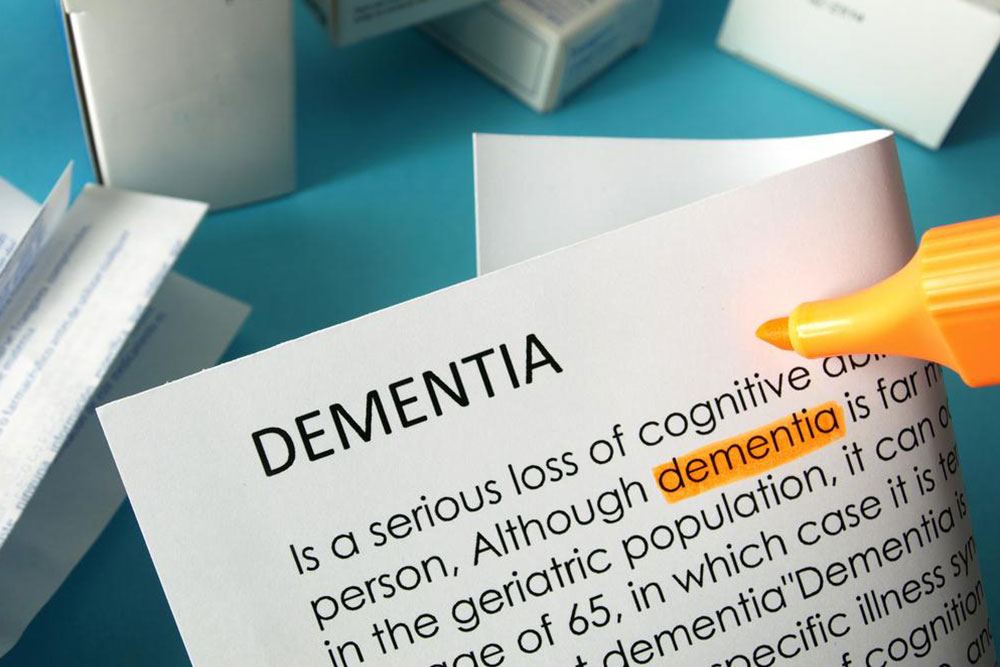Identifying the 7 Early Signs of Dementia for Better Care and Prevention
Learn to identify the seven early signs of dementia, including memory loss, mood swings, and disorientation. Early detection plays a crucial role in managing the condition effectively. Recognizing these indicators can lead to timely medical intervention, potentially slowing disease progression and improving quality of life. This comprehensive guide offers valuable insights into symptoms that often go unnoticed but are vital for caregivers and individuals to understand for better care and planning. Stay informed and proactive about cognitive health and early dementia symptoms.

Identifying the 7 Early Signs of Dementia for Better Care and Prevention
Dementia refers to a broad set of symptoms resulting from various brain disorders that impair cognitive functions such as memory, reasoning, language, and problem-solving abilities. Unlike a single disease, dementia encompasses multiple conditions, including Alzheimer’s disease, Huntington’s disease, and vascular dementia, each with unique characteristics but overlapping symptoms. Recognizing early indicators of dementia is vital because, although there is currently no cure, early detection allows for timely intervention, which can slow progression and improve quality of life. It also helps caregivers prepare and seek appropriate medical support for their loved ones. This comprehensive guide explores the crucial early warning signs that could suggest the onset of dementia, empowering individuals and families to act promptly.
1. Short-term Memory Impairment
Forgetting minor details is normal in daily life; however, frequent memory lapses that disrupt routines are warning signs. These include difficulties in recalling recent conversations, misplacing items often, or forgetting appointments and planned activities. A person may struggle to find familiar objects or forget why they entered a room, yet still remember events from years ago clearly. Persistent short-term memory problems can indicate the early stages of dementia, affecting daily functioning and increasing dependence on others.
2. Sudden Mood Swings and Behavioral Changes
Early dementia often manifests through notable shifts in personality and mood. A person might exhibit increased irritability, anxiety, depression, or become unusually apathetic. Sometimes individuals show signs of unexpected excitement or agitation, which can be confusing for families. Recognizing these emotional shifts is essential, as they may be misunderstood as stress or mental health issues, when in fact, they signal underlying neurodegenerative changes.
3. Reduced Interest and Social Withdrawal
A noticeable decline in enthusiasm for favorite hobbies, social events, or routines is common in early dementia. The individual might withdraw from social interactions, avoid conversations, or show diminished emotional responses. This apathy may be misinterpreted as laziness or depression, but it often indicates early cognitive decline. Spotting these behavioral changes can prompt earlier diagnosis and intervention, potentially slowing further deterioration.
4. Difficulty Performing Familiar Tasks
Difficulties with routine activities such as cooking, cleaning, managing money, or following a familiar recipe are significant indicators. Tasks that once were simple, such as playing games, operating household appliances, or managing personal hygiene, become increasingly challenging. This difficulty may stem from impaired concentration or loss of understanding, signaling early neurodegeneration. Recognizing these signs as part of a pattern is important for early diagnosis.
They may also find it hard to adapt to changes in their environment or routines, leading to frustration and confusion.
5. Disorientation in Time and Space
Forgetting where they are or how they got there is a hallmark of early dementia. People may lose their way in familiar surroundings, forget the date or season, or misplace everyday objects. They might have trouble finding the right words during conversations, which adds to their frustration and social withdrawal. Disorientation significantly impacts independence and safety, so early recognition is critical.
6. Poor Navigation and Landmark Recognition
Difficulties in recognizing landmarks, following directions, or navigating familiar routes are common early signs. For example, a person might get lost in their neighborhood or forget how to reach their favorite store. They may struggle to remember how to return home after outings, which increases safety concerns. These navigation difficulties reflect worsening spatial awareness related to cognitive decline.
7. Repetitive Behaviors and Routines
Repeating tasks, phrases, or routines excessively is often observed. For example, a person might rewash their hands multiple times, repeatedly ask the same questions, or compulsively collect objects. These behaviors are usually due to memory lapses and the need for familiarity. Sometimes, individuals fixate on certain routines to reduce their confusion and anxiety, but these repetitive actions can signify early dementia if they become persistent.
Early detection of these signs allows for prompt medical evaluation, which can assist in diagnosis, planning, and managing the condition more effectively. Consulting healthcare professionals when these symptoms arise is crucial for obtaining proper assessments, potential treatments, and supportive therapies. Ultimately, understanding and recognizing these early indicators can significantly impact outcomes, enhance safety, and improve the quality of life for individuals experiencing cognitive decline.





